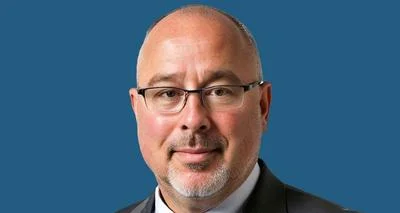Rep. Dan Caulkins | https://repcaulkins.com
Rep. Dan Caulkins | https://repcaulkins.com
State Rep. Dan Caulkins (R-Macon) is one of a group of lawmakers seeking to do away with some of the state's units of local government.
He and others suggest Illinois’ high property taxes would be decreased if local units of government were consolidated.
“It’s symbolic of one of the biggest problems we have here in Illinois and that’s too much government,” Caulkins told The Center Square. “There’s too much government, too much bureaucracy and too much red tape, which in turn makes for high taxes as a way to pay for all the overhead.”
Caulkins's comments came after the release of a new Illinois Policy Institute (IPI) study that concludes the state is home to more units of government than any other state in the country.
“We Republicans talk about consolidation in a way that won’t force our citizens to suffer,” Caulkins said. “We think there should be an easy way to support consolidations of things like townships and road districts. We think there should be an easy way to consolidate school district administrations. All of that would free up money that could be spent in the classroom, allowing property taxes to be reduced.”
Caulkins argues that consolidation, particularly in areas such as townships, road districts, and school district administrations, would free up funds that could be used for classroom resources and reduce property taxes. He believes that as the state's financial issues become more apparent without the aid of COVID-related federal funding, more lawmakers will recognize the need for reform.
Illinois Policy’s report is revealing. It notes Illinois’s high property tax rates and a reputation for corruption. One significant contributing factor to these issues is the state's excessive number of local government units, with nearly 7,000 in total. Compared to other states, Illinois has an unusually high number of local government layers, with 61% of residents living under three layers of general-purpose local government. This excludes various special districts that operate in certain areas, resulting in up to 16 different government agencies in some regions. The abundance of government layers makes it challenging for citizens to participate in the democratic process and organize efforts to reduce the number of local governments.
To address this issue, Illinois Policy suggests the state of Illinois should establish more accessible pathways for citizens to consolidate local government. This could be achieved through citizen-initiated or legislative-initiated referendums, as well as by eliminating unelected "dependent" governments. The aim is to streamline and simplify the local government structure, eliminating redundancies and increasing efficiency to save taxpayers' money. Moreover, consolidation efforts can enhance public participation in decision-making processes and help combat corruption by making government operations more transparent and accountable. Simplifying local government would ultimately empower citizens to actively engage in democratic processes and contribute to the fight against wasteful spending.
Austin Berg, vice president of marketing for the Illinois Policy Institute, said there are just way too many units of government in Illinois.
“The problem with this massive proliferation of local governments throughout the state is that it was very easy to create these once-upon-a-time,” Berg told WTTW. “That’s why we have thousands and thousands and thousands. But it’s almost impossible to change them. To redesign them. To get rid of them. I think what most people in Illinois agree on is that we pay really, really high property taxes – the first or second-highest in the nation depending on how you calculate it – but we’re not getting the first or second-highest quality in government services.”




 Alerts Sign-up
Alerts Sign-up